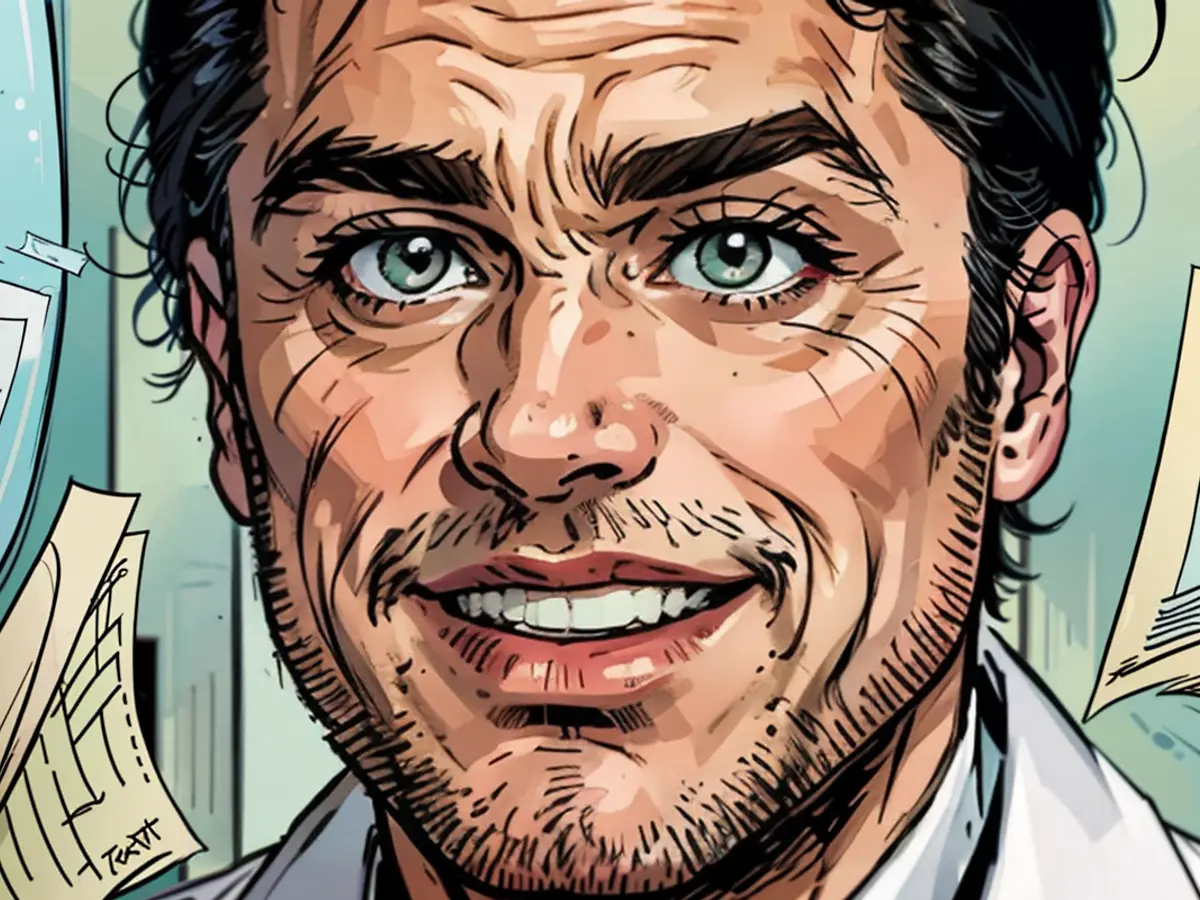Authorities allege this physician monetized Matthew Perry's substance abuse. They anticipate his return to practice later this week.
Dr. Salvador Plasencia, based in Santa Monica, California, is among five individuals being accused in connection to the tragic passing of the famed actor. Law enforcement officials claim that an illicit drug trafficking ring, comprising of dealers and suppliers, was responsible for circulating the lethal doses of ketamine that led to the actor's demise.
Perry, who gained fame as Chandler Bing on "Friends," lost his life in October 2023 at the age of 54 due to "acute ketamine effects" and subsequent drowning, as per the official autopsy report from the Los Angeles County Medical Examiner's Office.
Attorney Stefan Sacks, representing Plasencia, mentioned that his client would be resuming work at Malibu Canyon Urgent Care "anytime this week."
Plasencia has pleaded not guilty to one count of conspiring to distribute ketamine, seven counts of distributing ketamine, and two counts of altering and falsifying documents or records related to the federal investigation.
Three out of the five individuals charged in connection to Perry's death have agreed to plea deals. When asked about the possibility of a plea deal for Plasencia, his attorney mentioned that it was still too soon to make a decision as the defense team hasn't received any evidence from the prosecution yet.
Plasencia was granted bail last week, after posting a $100,000 bond and surrendering his DEA license, as well as his passport, which permitted him to prescribe controlled substances. His trial is scheduled for October 8.
The Medical Board of California is aware of the federal charges against Plasencia and another medical professional who has also been charged in connection to Perry's death, stated Alexandria Schembra, a board spokesperson, to CNN. Both individuals are under investigation by the board, but no restrictions have been implemented as of yet.
Plasencia's medical license remains active through October 2024, as per the medical board's records.
Plasencia's attorney mentioned that the doctor may attend to patients in person and via telemedicine, depending upon the patient's specific needs.
Under the judge's order, Plasencia's patients must sign a consent form acknowledging the forthcoming federal case against him and that Plasencia is incapable of prescribing any controlled substances.
Why can Plasencia continue to practice?
The situation involving a pending criminal case against a physician and their medical license involves two separate processes – criminal proceedings and professional licensure – progressing simultaneously, according to legal experts.
Legally-licensed physicians undergoing investigation by a state medical board are entitled to due process during the medical inquiry, which can lead to the suspension, revocation, or non-renewal of their license.
During an investigation, medical boards can take into account evidence from criminal proceedings as a factor in enforcing certain regulations on licenses – a standard implemented in California and nationwide.
There are restrictions in most states, including California, prohibiting consideration of an individual's criminal background or ongoing court cases against them in their employment or licensing process, as long as the issue is unrelated to their professional practice, explained Lindsay Wiley, a professor at UCLA School of Law.
However, when the allegations are directly related to the professional qualifications, such as in Plasencia's case, considering the criminal aspect is deemed fair, Wiley continued.
"The requirement that the implications for your license have to be reasonably related to the charges against you, that's meant to protect people from overly severe consequences of criminal actions," Wiley stated.
Investigations from state medical boards in the legal licensing process are known to be time-consuming, Wiley said, but criminal courts may impose sanctions or conditions on a defendant's release to ensure public safety until the trial commences.
While Plasencia is allowed to continue working, the magistrate's suspension of his DEA license and requiring the consent form were two court-imposed conditions implemented to safeguard public safety during the duration of the medical board's separate investigation.
What accusations are leveled against Plasencia?
Approximately a month prior to Perry's death, Plasencia became aware that the actor was interested in purchasing ketamine and contacted another doctor – Dr. Mark Chavez – according to court documents.
Chavez provided Plasencia with the ketamine intended for Perry through a fraudulent prescription, as mentioned in a document summarizing the allegations against him.
US Attorney Martin Estrada stated that Plasencia viewed this as an opportunity to profit from the actor, adding that Plasencia intended to be Perry's sole supplier.
As per Estrada, in a September 2023 message, Plasencia wrote: "I wonder how much this moron will pay?"
Over the subsequent weeks, the prosecution claimed that Plasencia acquired ketamine from Chavez, sold vials of the drug to Perry's assistant, and instructed the assistant on administering the drug.
Additionally, Plasencia allegedly visited Perry's residence to deliver ketamine and even administered the drug through injection in the back of a vehicle in a parking lot, according to the prosecutors.
On October 12, more than two weeks before Perry's death, Plasencia "administered a large dose" to Perry, causing a significant spike in his systolic blood pressure and rendering him incapable of speaking or moving, according to the prosecutors.
If found guilty, Plasencia could face imprisonment for up to a decade for each ketamine-related count and up to 20 years for each count of records falsification, as stated by the Department of Justice in a press release.
CNN's Jack Hannah and Taylor Romine contributed to this report.
The sentencing for Plasencia's criminal charges is scheduled for October 8, and during this time, he is still allowed to attend to patients both in person and via telemedicine, as per his attorney's statements.
Despite being accused of conspiring to distribute ketamine, providing the drug to a famed actor through a fraudulent prescription, and being involved in an illicit drug trafficking ring, Plasencia's medical license remains active through October 2024, according to medical board records.








